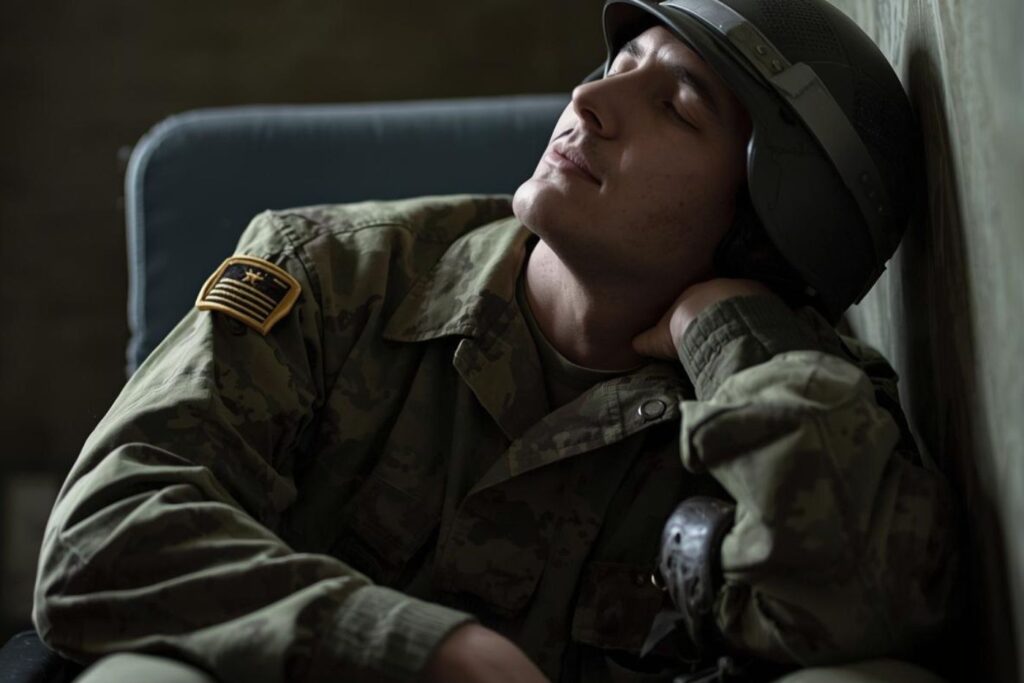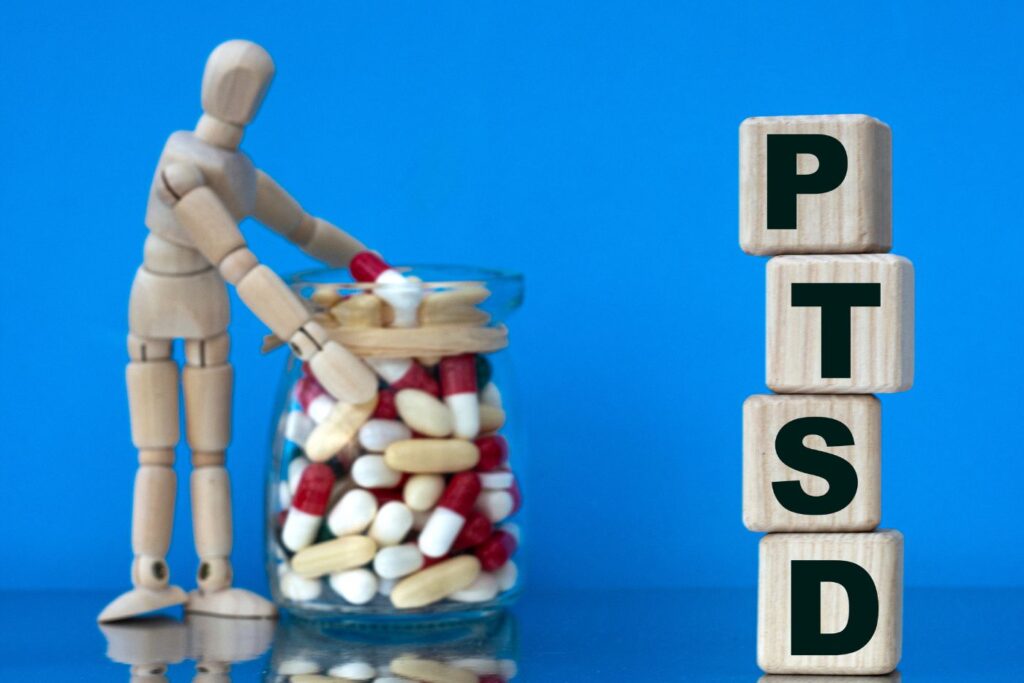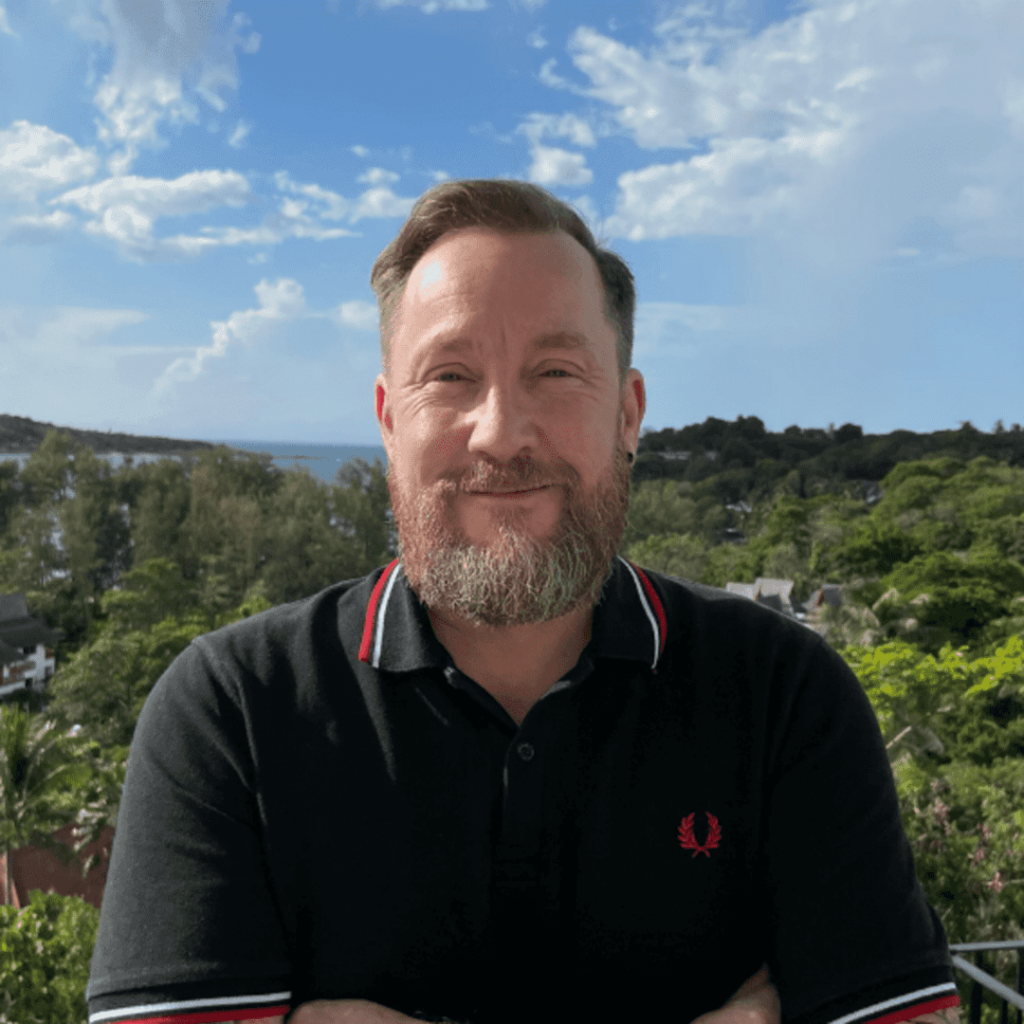Understanding Combat Stress Response: Signs, Causes, and Healing Strategies

Are you or a loved one suffering from Combat Stress Response? This condition can be distressing not just for those suffering from it, but also for the people around them who care. Fortunately, CSR generally resolves rapidly with appropriate treatment.
What is Combat Stress Response?
Combat Stress Response, or Combat Stress Reaction (CSR), is a common response to violent and traumatic events in combat zones. Also known as battle fatigue, combat stress was first identified during WWI, when all trauma-related stress responses were referred to by the umbrella term ‘shell shock’. Combat Stress Response differs from Post Traumatic Stress Disorder (PTSD), which is a chronic and long-lasting condition, while CSR is often short-lived and considered a natural reaction to the traumatic situations servicemen and women encounter when on active service. CSR may disappear of its own accord after a few weeks or months of rest. However, this is not always the case, and if persistent CSR remains untreated, it can develop into PTSD.
One survey suggests 10 to 15% of deployed military personnel become ‘stress casualties’ as sufferers of CSR, and the percentage is higher in actual combat units. In this blog, we will help you understand the signs and causes of CSR. We also give you the information you need to prevent CSR from developing into PTSD.
(For more information on Combat Stress Response treatment, contact Yatra Centre on +66 96 916 3287.)
Signs of Combat Stress Response
The exact symptoms of Combat Stress Response will differ from one individual to the next, but CSR commonly impacts a person’s emotions, behavior, and physical health. However, it is important to realize that CRS is not an anomaly or a dysfunctional reaction, but just a natural coping mechanism following violent trauma.

Here are some common signs of Combat Stress Response:
Emotional Symptoms
Irritability or anger: feeling unusually short-tempered or finding small annoyances intolerable.
Anxiety and fear: a sense of constant worry or impending doom.
Emotional numbness: decreased responsiveness, feeling disconnected from loved ones or no longer being able to enjoy life.
Guilt or shame: replaying past events, questioning your actions or feeling responsible for what happened.
Behavioral Symptoms
Avoidance: avoiding reminders of combat experiences, such as certain places, people, or activities.
Hypervigilance: constantly being on edge, scanning for threats and having difficulty relaxing.
Sleep disturbances: Insomnia, nightmares, or restless sleep, which can lead to exhaustion.
Withdrawing from others: social isolation in order to try and cope with overwhelming emotions.
Physical Symptoms
Fatigue: feeling drained even after rest.
Headaches, stomach issues, muscle tension: physical pain, tight, contracted muscles, or digestive problems.
Increased heart rate: episodes of tachycardia or a feeling of tightness in the chest.
Should I be Worried about Combat Stress Response?
While CSR often passes after the sufferer is given a period of rest, there is nevertheless a risk that Combat Stress Response can lead to Post Traumatic Stress Disorder (PTSD). While CSR is usually observed for brief periods only, PTSD, in contrast, is a long-lasting, sometimes lifelong condition, which is much more difficult to treat.
This is why it is important to remain vigilant and watch out for signs you might need PTSD rehab.
Healing From CSR With Rest
Rest is an important part of the healing process from CSR. It is also vital, whenever possible, that personnel who have developed Combat Stress Response be removed from combat zones and spared further active engagement in conflict.
Modalities to Help Recover from Combat Stress Response
There are a number of modalities which can facilitate healing from CSR. Some, like cold therapy, can be done without the aid of a professional. Clinical approaches to CSR treatment, however, require the support of a professional who has extensive training in the modality.
Tension and Trauma Releasing Exercises (TRE)
TRE is a somatic therapy designed to help people with trauma release tension in the body. It is founded on the principle that past trauma may be stored and held as physical tension in muscles, tissues and nervous system. During TRE sessions, the practitioner guides patients through a series of stress positions. These awaken the body’s natural tremor mechanism, leading to a release of tensions, which activates healing and returns the nervous system to a state of equilibrium.
Once a person has attended a few TRE sessions, they can then apply the techniques at home and unassisted. TRE has been shown not only to help with CSR – people with Post Traumatic Stress Disorder also often find that TRE sessions a few times a month effectively reduce or resolve their PTSD symptoms.
Cold Therapy
Cold therapy can be immensely healing when processing trauma, thanks to its ability to help return the nervous system to a state of calm. Low temperatures stimulate the vagus nerve, one of the largest nerves in the parasympathetic nervous system, which plays a vital role in responses to trauma. The parasympathetic is known as the ‘rest and digest’ system, because it induces a state of rest and relaxation and supports bodily functions such as digestion. From a psychological standpoint, it helps people ‘digest’ or process emotions.
Thanks to its powerful effect in balancing the nervous system, cold therapy can greatly improve symptoms of Combat Stress Response, and help prevent CSR worsening into PTSD.
Sound Healing
Sound healing harnesses the therapeutic properties of sound in the service of healing. It is based on the principle that sound waves can have a beneficial influence on brainwaves. Furthermore, studies have shown that certain sound frequencies can help balance the nervous system, stimulate the release of endorphins, and reduce levels of the stress hormone cortisol.
By inducing a state of repose and emotional release, sound healing can assist greatly in treating CSR. Using music, or a spectrum of different sounds, vibrations are created in the body, inducing a state of deep relaxation.
EMDR
Eye Movement Desensitization and Reprocessing is an evidence-based psychotherapy that uses guided bilateral stimulation, such as eye movements, to help military personnel experiencing Combat Stress Response deal with traumatic memories. EMDR helps CSR sufferers ‘revisit’ traumatic memories, while using conscious eye movements to lessen the trauma associated with these. Memories processed in this way can then be let go of, and the tension built up in the body and nervous system can be released.
As a result, EMDR can help lessen other symptoms of nervous system imbalance, such as insomnia, stress and gastrointestinal disorders.
Why do Some Military Personnel Develop PTSD after Combat Stress Response?

While some military personnel with CSR go on to develop PTSD, this is not an inevitable outcome. Research indicates that approximately 37% of servicemen and women who experience Combat Stress Response during combat are later diagnosed with PTSD. Here are some of the reasons why this happens.
Severity and Duration of Trauma
A number of factors can affect the likelihood of a person developing PTSD, while others may predispose a person to developing the condition.
The intensity and length of exposure to traumatic events play a critical role. Those who experience prolonged combat, repeated exposure to life-threatening situations, or witness extreme violence are more likely to develop PTSD. The cumulative impact of multiple traumatic experiences can overwhelm the brain’s capacity to process trauma, and inhibit a person’s ability to overcome CSR.
Pre-Existing Mental Health Conditions
Those with a history of mental health issues, such as anxiety or depression, are more vulnerable to developing PTSD after experiencing Combat Stress Reaction. These pre-existing conditions may make it harder for them to cope with the stress and trauma of combat.
Childhood Trauma
Childhood trauma can wire the brain and nervous system in such a way that individuals with a history of childhood trauma are far more likely to develop PTSD following Combat Stress Disorder.
Lack of Social Support
Social support is essential in recovering from CSR. It is crucial that military personnel normalize their experience, talk about their CSR and voice their feelings, concerns and anxieties.
Those who lack a strong support network – be it family, friends, or their unit—may feel isolated and struggle to process their experiences. This lack of connection can increase the risk of developing PTSD.
Unhealthy Coping Mechanisms
It is common for service personnel with Combat Stress Reaction to attempt to numb their trauma through means of ‘escape’ such as alcohol, drugs or the use of other maladaptive coping strategies. These unhealthy coping mechanisms may lead to personnel not getting the help they need. Substance abuse following trauma is also more likely to cause dependence.
Trauma Type and Personal Meaning
Guilt or shame around feeling they were not up to the task or did not respond properly in a combat situation, as well as experiences such as witnessing the death of comrades, may cause moral injury to sufferers of CSR. They may also find themselves in deep inner conflict, which can lead to unresolved trauma and the development of PTSD.
Talk therapy can help those with CSR review their perspective over guilt and shame, which may help prevent PTSD from developing.
Cultural and Organizational Factors
The military culture of stoicism, and the stigma around seeking help for mental health, can prevent military personnel from addressing their CSR symptoms early enough. Delayed treatment or suppression of emotions can contribute to the development of chronic PTSD.
Combat Stress Response Treatment at Yatra Centre
Combat Stress Response often requires treatment, in order to prevent CSR developing into PTSD. At Yatra, we have the tools to treat your CSR effectively, ensuring you recover quickly, thereby limiting this risk.
Situated in Krabi, Thailand, our centre provides an excellent space to not only engage in modalities which support CSR healing, but also to unwind in a relaxing environment. We believe that our serene location plays an important role in healing from trauma. For more information on how we can help you heal from CSR and other trauma-related conditions, contact us today on +66 96 916 3287.

Mike Miller
Founder & Clinical Director
Mike Miller is a Certified Clinical Trauma Professional, Certified Addiction Therapist, and EMDR Therapist with advanced training in trauma and mental health. He has over 20 years experience delivering behavioural health treatment to clients internationally. As a leading trauma expert, Mike developed the Yatra programme in 2022 to accelerate healing and support lasting transformation.
Subscribe to our newsletter.
Subscribe to our newsletter and join a supportive community dedicated to understanding, overcoming, and transforming personal trauma.
Related Articles
Why a Somatic Healing Retreat Might Be Exactly What You Need
You’ve tried therapy. You’ve read the books. You’ve done your best to manage stress, anxiety, or…...
Trauma Healing and Rehab in Thailand: An Interview with Yatra
Addiction and unresolved trauma affect millions of individuals and families around the world. These challenges are…...
Can PTSD Meds for Nightmares Help You Sleep?
Research from the National Center for PTSD shows that over 90% of Vietnam vets with post‑traumatic…...
Your Complete Guide to PTSD Recovery After Trauma
If you’re reading this, chances are you or someone you love is living with the impact…...



